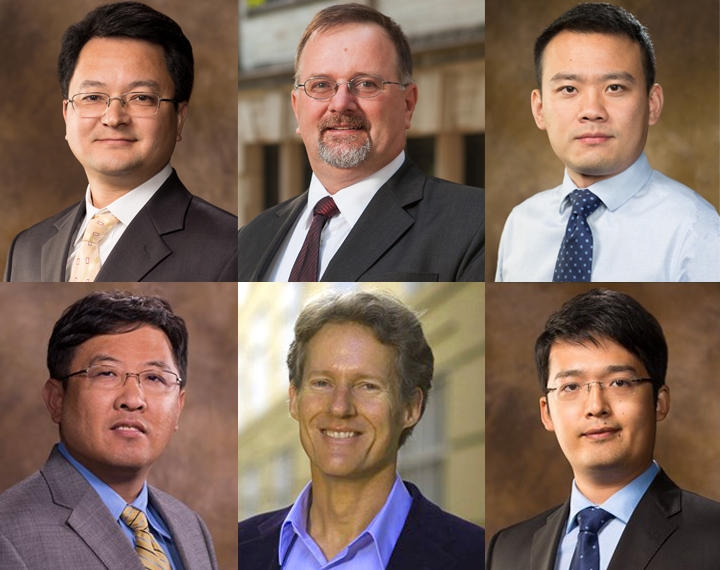
The National Science Foundation has awarded researchers from industrial engineering, electrical engineering and computer science at the U of A $1.45 million to investigate of the potential of artificial intelligence as a driving force for changes to critical infrastructures and industries.
Their ultimate goal is to establish a collaborative research and workforce development/education program. This four-year multi-institution, multidisciplinary project, worth $6 million in total, will be led by North Dakota State University and the U of A, with other collaborators from University of Nevada-Las Vegas and Nueta Hidatsa Sahnish College in New Town, North Dakota.
"We know firsthand that vulnerabilities in our energy grid can have serious consequences for our economy and society, so I'm proud of this multidisciplinary team investigating how artificial intelligence can help improve our energy infrastructure," said Kim Needy, dean of the College of Engineering. "We're grateful to the National Science Foundation for supporting work that will help ensure our energy infrastructure is protected against various catastrophic failures."
Led by professor Haitao Liao, the Arkansas team includes Ed Pohl, professor, and Xiao Liu, assistant professor of industrial engineering; Xintao Wu, professor of computer science and computer engineering; Roy McCann, professor, and Yue Zhao, associate professor of electrical engineering.
"It has been a great experience working on this multidisciplinary team," Wu said. "We will develop new AI models such as multi-layered network embedding and neural survival analysis and integrate them in the data-driven decision-making framework for responding to disruptions in the energy systems." Wu leads the Social Awareness and Intelligent Learning (SAIL) Lab, which conducts research in areas of data privacy and security, data mining, machine learning and artificial intelligence.
McCann said the national energy infrastructure is rapidly expanding to provide a wider range of electricity sources such as from wind and solar. "As was seen from the cold weather-related blackouts and disruptions in Texas during February, it is imperative to build resilience into energy delivery systems. Because of the increasing complexity of energy networks and supply chains, developing AI into the equipment that controls energy production and delivery is a solution for meeting future reliability demands."
Zhao continued this point by saying the U of A is home to the NSF Center on GRid-connected Advanced Power Electronic Systems, also called GRAPES. "Over the past decade, extensive research and development work has been done in GRAPES to accelerate the adoption and insertion of power electronics into the electric grid in order to improve system stability, flexibility, robustness and economy. In this project, as GRAPES faculty members, professor McCann and I will contribute to the modeling and simulation for the power grid."
Topics
Contacts
Tamara O. Ellenbecker, website developer
Department of Industrial Engineering
479-575-3157, tellenbe@uark.edu
Jennifer P. Cook, director of communications
College of Engineering
479-575-5697, jpc022@uark.edu